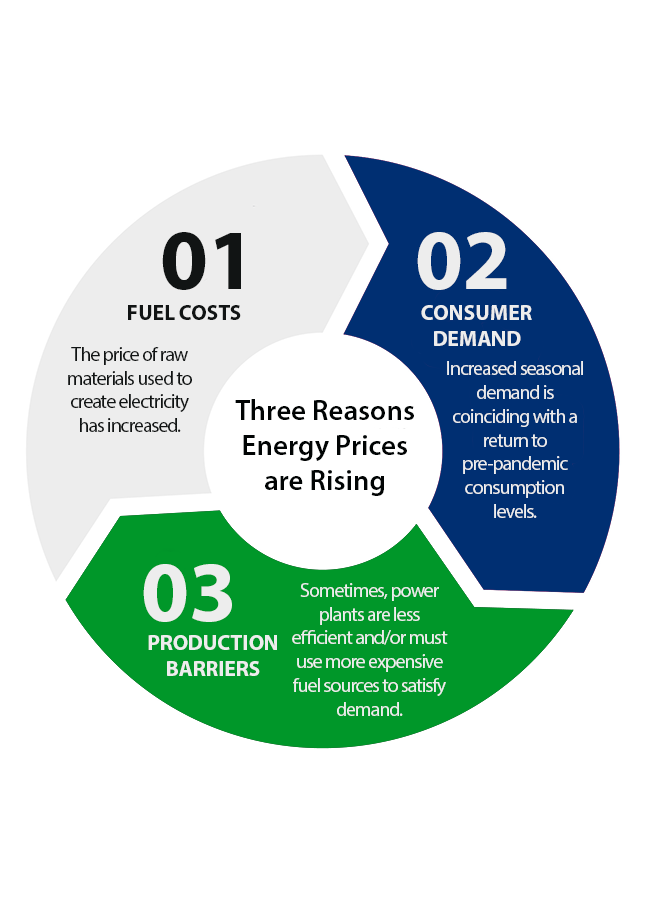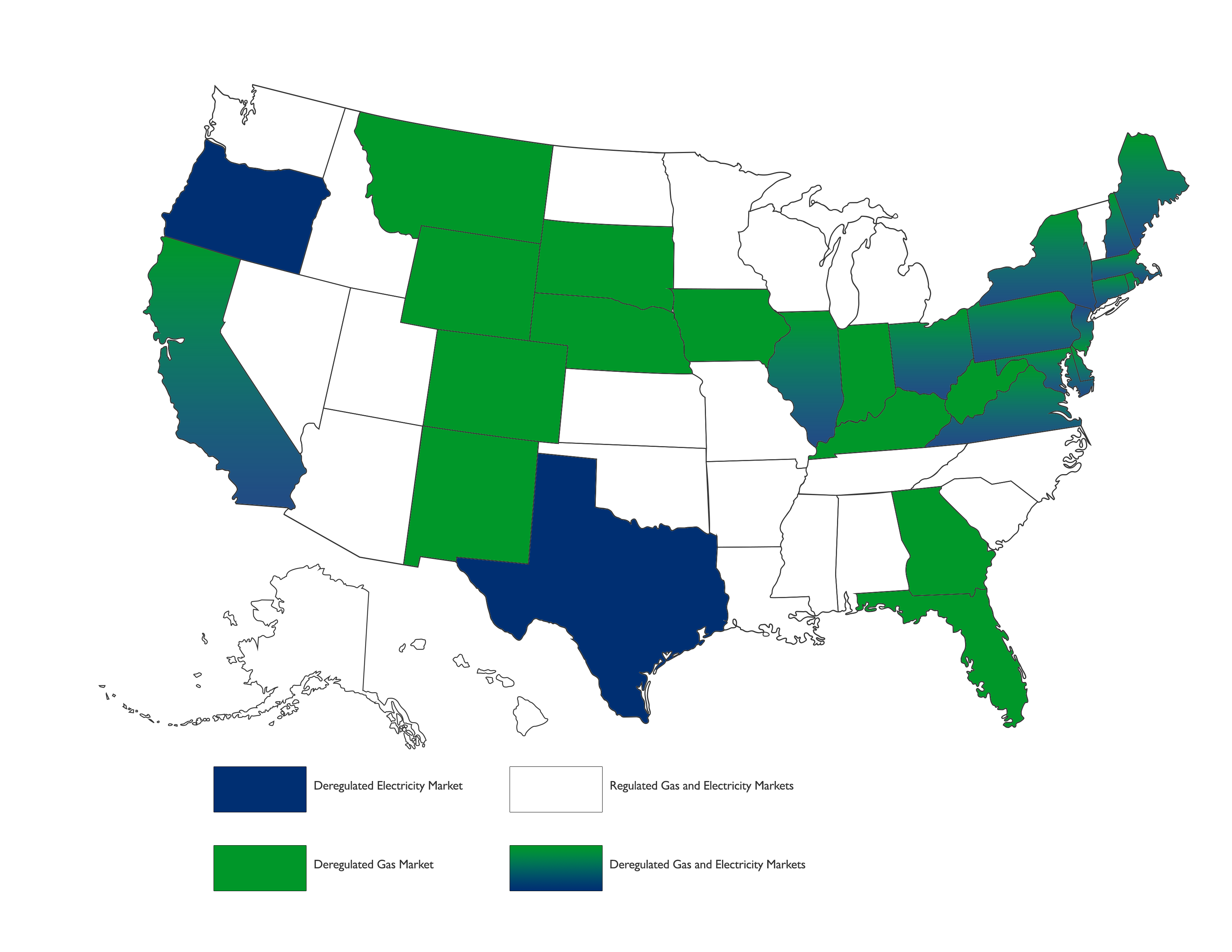In 2022, energy is one of the most significant expenses of businesses in the United States. Regardless of market or economic sector, business owners are increasingly interested in educating themselves about their energy costs and energy options in order to make the best, most informed decisions for their companies' bottom line. Keeping your business informed and agile in a volatile market is what the energy experts at Integrity Energy do best!
Read on for our curated list of business energy resources.
Energy is More Expensive Than Ever Before
There’s no escaping it - the cost of energy is rising. And while there are several complex reasons for current pricing spikes, international conflict, supply limitations, and unprecedented demand for natural gas top the list of price-pushing culprits. All these factors contribute to the rising cost of electricity, which will impact many businesses with higher utility bills each month. The US Energy Information Administration predicts that this trend will continue at least through the end of 2022.
Operating Your Business in a Deregulated Energy Market Could Mean Saving on Energy Costs

Concerned about what the predicted rise in energy pricing could mean for your business? Exploring your energy supplier options on the deregulated market is an essential first step in developing an energy plan for your business.
In the U.S., energy deregulation removes governmental restrictions and allows energy consumers to choose who supplies their electricity and natural gas. This process creates greater competition among suppliers, resulting in lower prices and encouraging innovation within the energy industry.

- Texas
- California
- Connecticut
- District of Columbia
- Delaware
- Illinois
- Maine
- Maryland
- Massachusetts
- Michigan
- Montana
- New Hampshire
- New Jersey
- New York
- Ohio
- Pennsylvania
- Rhode Island
Because deregulated markets put the power of energy choice into the consumers’ hands, suppliers must win over their customers. This rivalry among suppliers can lead them to offer more competitive pricing and improved energy technologies (including renewable technologies) in order to earn the business of energy shoppers.
Additional benefits of deregulation include:
- Lower Rates: A large number of suppliers means increased competition in the deregulated market, which drives down energy rates for everyone.
- Custom Billing Solutions: Flexibility in pricing and billing structure is another benefit of the deregulated market. Many suppliers offer unique or customizable pricing plans in an effort to stand out in a competitive market.
- Enhanced Customer Service: Pricing isn’t the only point of competition for energy suppliers. Customer service increasingly sets suppliers apart from the competition, and consumers in deregulated markets enjoy premium service and sophisticated consumer platforms.
- Greener Energy Options: Suppliers recognize that consumers want environmentally friendly energy options. Many business owners are looking to go green with alternative energy sources. The deregulated market allows consumers to select an alternative energy option like wind or solar power, helping them implement or create environmental goals for their business or industry. Common renewable energy sources in the United States include wind, solar, and hydropower.
Additional Cost-Saving Energy Tips
EnergyStar.gov estimates that small businesses spend over $60 billion per year on energy costs - that’s significant! It’s essential to be confident in your business energy plan. In addition to shopping for the best supplier for your unique business needs, there are other steps you can take to save money on your business’ energy bills. Some of the most effective energy-saving strategies include upgrading to energy-efficient lighting systems or switching from traditional heating units to energy-efficient heat pumps.
If you're looking to take energy-saving measures one step further, consider an energy audit. These comprehensive assessments of your energy usage provide in-depth information on energy savings opportunities specific to your business and facility, allowing you to make the most informed energy decisions possible.
Understanding your energy bill is another simple, but important, step you can take to save money. At first glance, energy bills can be confusing and seem to contain a lot of information. Some key factors that may be included on your energy bill include:
- The price per unit of energy ("e.g." kilowatt-hours or therms).
- Estimated energy costs for the current month, compared to your average energy usage over time.
- Information about energy resource providers and delivery channels.
- Details on energy use and conservation programs available in your area.
By reviewing these factors and comparing them to your past energy usage, you can gain a better understanding of your energy habits and identify potential areas for improvement.
Pro-Tip: When looking at your energy bill in a deregulated market, it’s essential to understand the difference between your utility company and your energy supplier. The utility transports power to your business and issues your energy bill. Your energy supplier provides the energy the utility transports. In deregulated markets, you can select your supplier.
Integrity Energy is Here to Help!
If you are operating a business in a deregulated energy market, the key to cutting energy costs is to shop around for the best rate. At Integrity Energy, we recognize that not everyone has the time or inclination to learn the complicated and ever-changing nuances of the deregulated market. And that’s okay because our energy experts are standing by to partner with you as you navigate the shopping process! It’s our goal to connect you with the best, most cost-efficient suppliers so you can focus on operating and growing your business. Contact us today!
